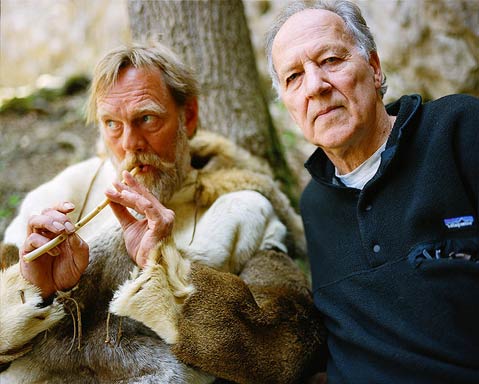Cave of Forgotten Dreams
A Film Written and Directed by Werner Herrzog

What’s this? Famed cinema hero/artiste Werner Herzog goes 3-D? What’s this world coming to, and has the man—68 and going strong—finally sold out in his golden years? No. In fact, Herzog’s hypnotically fine and typically meditative documentary Cave of Forgotten Dreams wears its 3-D technology with gracefulness and artistic purpose; something rarely seen in its drive-in-born and multiplex-choking history.
For Herzog, the added dimensionality becomes a visual and perceptual tool for enhancing the essence of what he’s after in this film—an expression of the sheer wonder and speculation on culture, time, and human existence triggered by his exploration of the French Chauvet Cave. This major archeological discovery, made only in 1994, contains dazzling and pristinely preserved examples of cave paintings dating back 32,000 years, further back in time and human evolution than any previous discovery.
By now, Herzog’s sizable body of documentaries have gained a powerful distinction and signature style in the medium, but he has been on a particularly formidable roll in the last several years, between Grizzly Man, Encounters at the End of the World, and now Cave. Disparate though the subjects are, the films have clear tentacles in Herzog’s fascination with extremes of humanity and its fragile and bullying relationship with the natural world.
As in his best work, Herzog’s latest dreamy investigation manages to blend responsible reportage and scientific data—at least as much as can be ascertained in an innately speculative field—with some surprising asides and assertions, such as that the “modern human soul” was born in the time of these Paleolithic paintings. In some way, though, the real expressive centerpiece of the film comes deep into it, as the narration and explanation fades away and Herzog allows his cameras to roam around the cave and its stunning ancient paintings, in rhythmically wavering light and shadow, while composer Ernst Reijseger’s wonderfully evocative musical score accentuates the wonder of it all.
Leave it to the stubborn, quirky, semi-visionary German director to tweak 3-D into useful service of his late adventures in exploring the strange “wonder of it all.”



